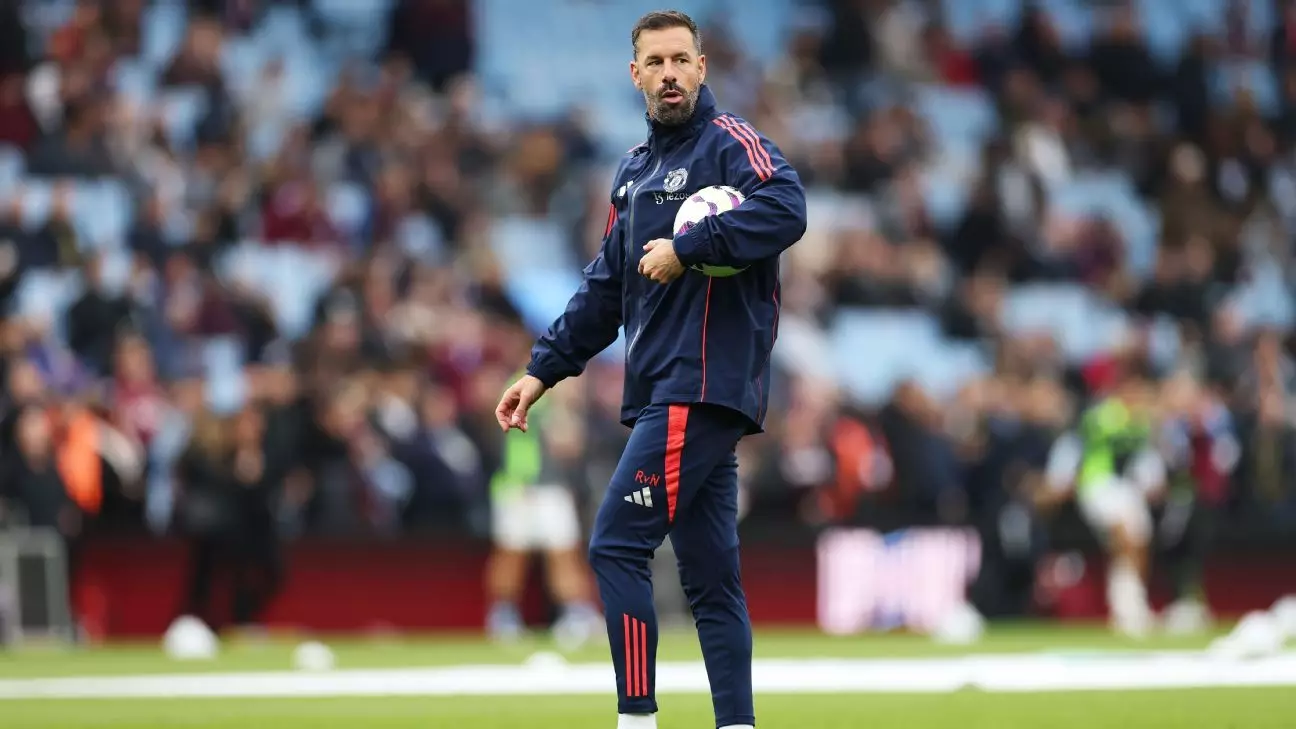Ruud van Nistelrooy’s appointment as interim head coach at Manchester United comes laden with a blend of anticipation and scrutiny. The legendary striker, renowned for not just his goal-scoring prowess, but also his formidable personality, has a history at the club that is as colorful as it is controversial. His tenure as a player was marked by fiery eruptions, including a particularly memorable confrontation with Sir Alex Ferguson and an emotional altercation with a young Cristiano Ronaldo. While many players fade into obscurity after leaving the pitch, van Nistelrooy’s memory continues to reverberate through the halls of Old Trafford, casting a long shadow over his new role.
Ferguson once remarked on van Nistelrooy’s increasingly difficult demeanor during his final season, suggesting a gradual discontent culminating in a series of confrontations. The nature of these disputes reveals a player deeply passionate about the game, yet one whose fiery temperament sometimes led to discord. Despite the animosities of yesteryear, both Ferguson and van Nistelrooy claim to have mended their relationship. Still, the question lingers: how will this storied past influence his current leadership style?
There is no denying that van Nistelrooy embodies the traits often associated with elite managers. He demands a high standard from those around him, often pushing players beyond their comfort zones. This uncompromising nature makes him a figure of both respect and fear. His wealth of experience at the highest echelons of football—having starred at clubs like United and Real Madrid—reinforces the authority he carries with him as he steps into the role of head coach.
Yet, stepping into the manager’s shoes brings a unique set of challenges. Prior reports from his time at PSV Eindhoven suggest that not all players were enamored with his coaching style, revealing some friction that stemmed from his approach. Despite leading PSV to success, including a KNVB Cup win and Champions League qualification, it seems that his methods resonated diversely among his squad. While some, like Cody Gakpo and Xavi Simons, credit him as a significant mentor, others expressed dissatisfaction with his tactics. The dichotomy illustrates the evolving landscape he must navigate at United, with an underperforming squad and soaring expectations.
What remains clear is that van Nistelrooy is a pragmatist, often forced to adapt his style based on the circumstances around him. At PSV, he utilized a counterattacking strategy that catered to his players’ strengths, a decision made with the understanding that the team’s defensive frailties necessitated such an approach. This adaptability is crucial as he takes on the challenge at Manchester United, where the dynamic can shift unpredictably.
While he may not possess the extensive managerial experience of some, van Nistelrooy brings a unique perspective gained from working alongside football luminaries like Guus Hiddink and Ronald Koeman in the Netherlands setup. This collaborative history demonstrates his willingness to learn and grow, a quality that may serve him well as he forges his path at Old Trafford.
Faced with a team that seems to have lost its way, van Nistelrooy’s ability to relate to players will be pivotal. Reports indicate that he has been proactive in engaging with individuals on a personal level, an effort that could foster a sense of unity and morale that has been lacking. The charisma and aura he exudes are qualities that can galvanize a squad in dire need of rejuvenation.
Despite the adversity he faces, there’s a glimmer of hope for Manchester United. His distinct approach could be just what the beleaguered club needs to avoid prolonged mediocrity. As he takes the helm, the prospect of players—such as Marcus Rashford and Bruno Fernandes—responding positively to new methods could lift the team’s overall performance. Van Nistelrooy’s history with the club, coupled with his undeniable talent, gives him a rare opportunity to spark a revival.
Nevertheless, one pressing aspect that van Nistelrooy must address is the squad’s overall fitness and concentration during games. Ten Hag’s tenure saw frequent lapses in the final stretches of matches; if van Nistelrooy can instill a renewed focus, it could prove an essential catalyst for improvement.
Ruud van Nistelrooy’s return to Manchester United represents an exciting intersection of history and potential. His formidable reputation, combined with a fresh perspective born out of both triumphs and trials, places him in a unique position to influence the club positively. Whether he can navigate the complexities of management at such a storied institution remains to be seen, but if there is one thing to expect, it is that he will do things on his terms—relentlessly and unapologetically. The next chapter at Manchester United may yet be written in the bold strokes of van Nistelrooy’s passion and experience.

